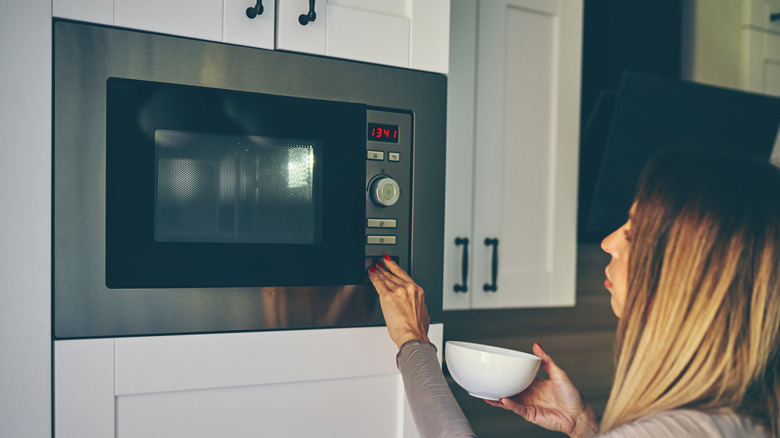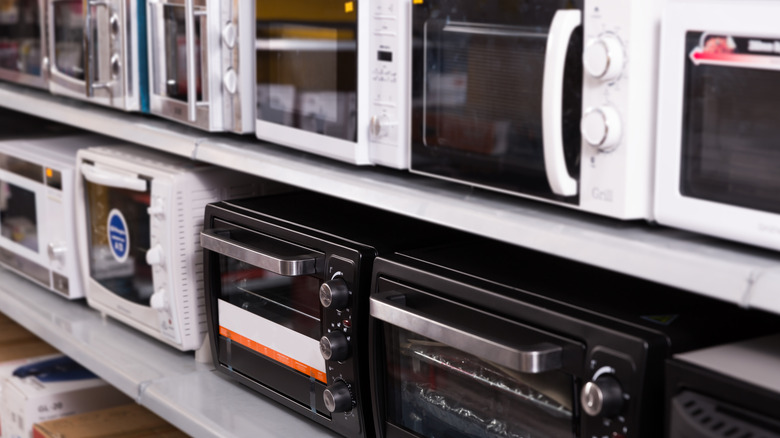What To Know Before Replacing Your Microwave With A Convection Oven
In some households, the microwave is a kitchen appliance people can't live without. Introduced in 1955, the Tappan model RL-1 was the first ever microwave for home use, but its $1,295 price tag was too steep for most people. The RL-1 was a commercial bust, but over time, consumers got used to the technology and the price came down. Microwaves' popularity grew, and by 2000, 90% of American homes owned one. Meanwhile, home convection ovens came on the scene as a tool for bakers in 1967, and their sales are now expected to reach more than $4 billion in 2025. The two appliances operate with different heating elements and have differing meal prep uses, but both have become must-haves for most fully-equipped kitchens.
If you're thinking about replacing your microwave with a convection oven, you'll lose some convenient functions. Microwave ovens use electromagnetic waves to cook food, while convection ovens, either as a stand-alone countertop appliance or a feature within a traditional oven, use a fan to circulate hot air inside the appliance. Because of this, microwaves and convection ovens have differences in cooking time, preheating and defrosting capabilities, and overall usefulness in reheating food. Some foods simply cook better in one option or the other, so throwing out your microwave in favor of a convection oven may not be your best choice.
Should you replace your microwave with a convection oven?
Before you replace your microwave with a convection oven, consider each appliance's pros and cons. Convection ovens cook food more evenly than standard ovens because of the fan circulating the hot air. They beat microwaves when it comes to roasting, baking, and toasting, and some convection ovens even have settings for air frying and dehydrating. Your standard microwave can't substitute for an air fryer or a dehydrator, though there are some microwaves out there designed for air frying. Convection ovens are better at getting food crispy and retaining that crispiness when reheated. They also have a longer lifespan of 10 to 15 years — a few years beyond how long microwaves last.
Despite lacking some of the benefits of convection ovens, microwaves still have their own important roles in your kitchen. If you ditch your microwave, you'll lose the ability to cook without preheating the oven. In general, microwaves cook food much more quickly than convection ovens, and they can also defrost things without cooking them. Microwaves are also better at imitating some stovetop cooking methods like steaming and boiling. Prices will vary based on the exact appliances you're buying, but microwave ovens are generally the more economical choice.
If you only have space for one appliance but want the features of both, look for a hybrid convection microwave. For home chefs choosing between conventional and convection ovens, even a hybrid convection microwave won't be able to replace a traditional oven altogether — there are functionalities you'd lose, like cooking multiple dishes at once or larger individual dishes like a Thanksgiving turkey.

